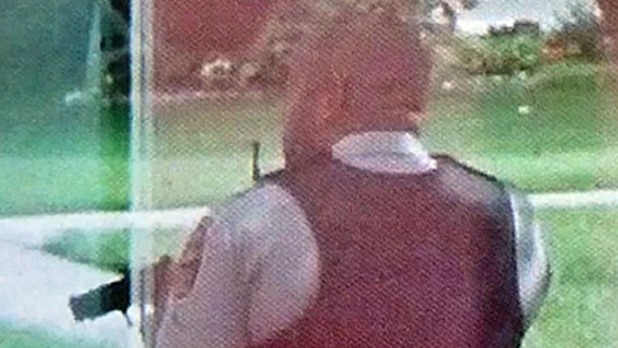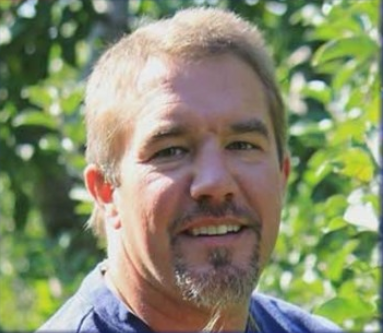CBC
February 21, 2015
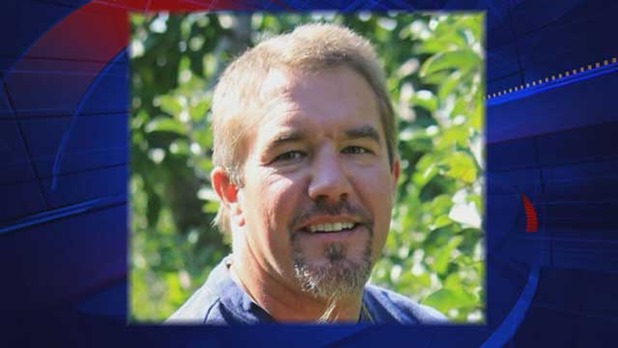
White privilege didn’t protect John Geer.
That’s not to say he didn’t have it. As a middle-class kitchen designer living in the pleasant Washington suburb of Fairfax, Va., he had nothing whatsoever in common with the impoverished black men killed by police in Missouri and Brooklyn last year.
Those deaths triggered riots, marches and demonstrations across America, and interventions by the White House.
But Geer, pierced 18 months ago by a police bullet as he stood inside the screen door of his own home, his hands raised, begging not to be shot, simply disappeared into the emotional mixing bowl of American news and political priorities.
That should not have happened. The killing of John Geer is probably the clearest and most compelling example of what amounts to police impunity in recent American history.
He committed no crime the day he was killed. Even the officer who shot him acknowledges that. There was no struggle. The details are not murky.
But because no one was marching in the streets on behalf of John Geer, because he was absent from national headlines, the system was able to make his outrageous death go away by the simple expedient of doing nothing and refusing to discuss it.
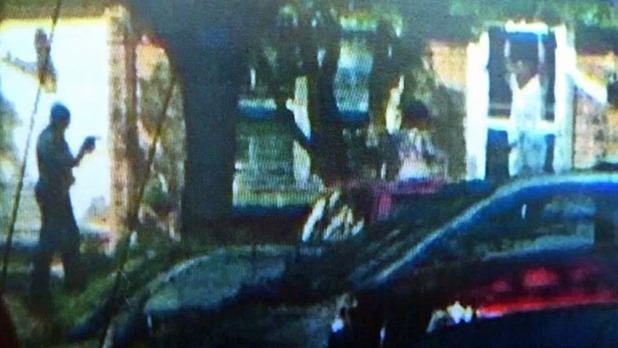
Here are the facts:
In August 2013, Geer’s common law wife, who was breaking up with him and moving out, called police to report he was angrily throwing her possessions onto his front lawn.
Asked whether Geer had weapons, the woman answered yes, but they were legally owned and secured. No, he hadn’t been drinking.
Two squad cars — four officers — initially responded. Geer, on seeing them, retreated into his home, refusing to answer questions.
A few minutes later, Officer Rodney Barnes, a trained police negotiator, arrived, and as the four other policemen stood close behind him with weapons drawn, he began trying to coax John Geer out onto the porch.
Barnes would later recall that Geer was polite, but reluctant to leave his home, saying repeatedly he was frightened of being killed.
He said “I don’t want anybody to get hurt,” the negotiator told investigators a few months later. “I don’t want to get shot.”
Barnes asked Geer if he owned a pistol. Geer said yes, and fetched it. He held it up, holstered, for Barnes to see and set it aside, raising his hands again. He offered to let Barnes come into the house and retrieve the weapon.
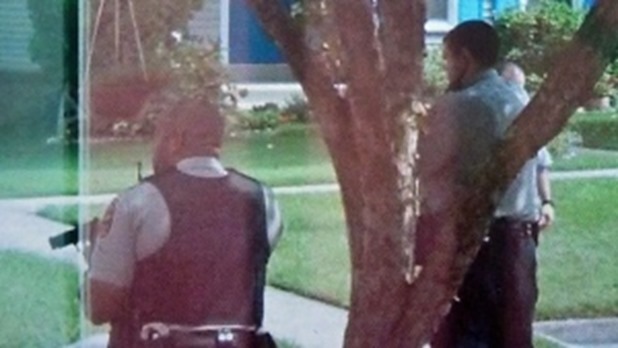
He asked for permission to scratch his nose, Barnes said, and did it slowly, then raised his hands again. He asked to reach into his pocket for his phone; Barnes asked him not to, and he obeyed.
“He said ‘I know if I reach down or drop my hands I can get shot,” Barnes told detectives later. “I said, hey, nobody’s going to shoot you…”
But Geer pointed to one nearby officer in particular: Adam Torres, who kept raising his Sig Sauer pistol from the “ready” position (pointed at Geer’s legs) to aim at Geer’s chest.
Please ask him not to point his gun at me, Geer begged Barnes. Geer even offered to come out and be handcuffed voluntarily if Torres and the other patrolmen would agree to move “way back.”
Then he asked to scratch his nose again. Barnes consented. And Torres fired.
Geer, grabbing his wound, screamed in pain and stepped back, slamming his door.
“And I’m like, who the fuck shot?” Barnes told detectives later. “I kinda got a little pissed.”
Torres acknowledged it had been him, and began muttering how he was sorry, and that his wrist was hurting. Then, unbidden, he told Barnes how he’d had a fight over the phone with his wife just before arriving on the scene.
